First Look: H2: Halloween 2. Rob Zombie Updates. BONUS RANT: Hunter Stephenson's Take On Zombie's Halloween Vs. Platinum Dunes' Friday The 13th (Of Suck)

The gory image above is our first clear look at Laurie Strode, once again played by actress Scout Taylor-Compton, in H2: Halloween 2. Nice chipped teeth, eh? As you'll recall, Strode is the (formerly) estranged sister of slasher Michael Myers, and according to horror visionaire Rob Zombie, "let's just say this is the best part of her stay [at the hospital]. The worst is yet to come." It will be interesting to see how Zombie's sequel deviates from the original underrated 1981 follow-up, which was co-written and ghost-edited by The Shape's creator, John Carpenter, and also set partially in a hospital to creepy effect. On his blog, Zombie has ended speculation about actor Malcolm McDowell reprising the pivotal character, Dr. Loomis, confirming that "he's back and ready to deal with Big Mike."As we've mentioned, H2 is due with the quickness this August and is now shooting in the state of Georgia.
After the jump: Hunter's lengthy rant on the complete disappoinment and failure that was Marcus Nispel's Friday the 13th, and Platinum Dunes' annoying reign over horror icons vs. Rob Zombie's polarizing Halloween and interpretation of Michael Myers. No friggin' contest!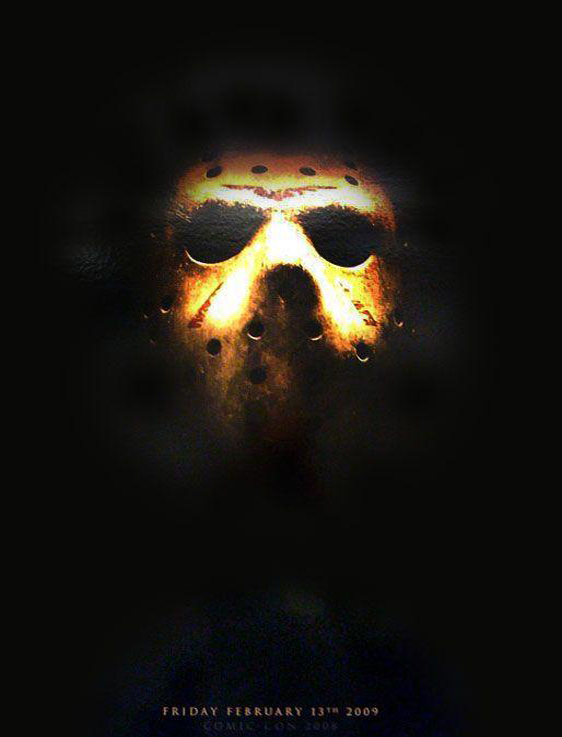
I haven't had the chance to chime in on /Film per the new revamp of Friday the 13th, but it definitely ranks as another 80% ball-drop for Platinum Dunes. Like most of the horror coming out of that company, their latest cash-grab exudes many of the side effects attributed to steroids. You can't bask in the big tits for the filmmakers' tiny 'nads and obnoxious egos. Not only are the kills startlingly perfunctory here—the franchise's calling card—but PD continues to use their outdated stable of Abercrombie steakhead actors and actresses (did American Apparel never strike the zeitgeist?), lame jerk-off jokes and rap references, and repeat. I'm surprised there wasn't a death by Axe Body Spray. Dunes' go-to director Marcus Nispel makes the same movie over and over—oooh, look, forests backlit like there's a little league game going on nearby, scary—and he doesn't seem to grasp that Jason Voorhees—'tard sack or goalie mask—is not a generic Leatherface. Electricity and an endless underground lair? A Rambo-like mastery of archery (not arrows guided by death itself)? A King Kong-like empathy crush complete with chains? And the ending was so soft, predictable and unimaginative it was like producer Andrew Form writing "SUCKERS!" in Jacuzzi bubbles.
Lots of moviegoers, not even the diehard fans, are disappointed and mumbling foul. And that's why Jason's comeback won't get anywhere near $100 million, when it damn well could and should have. Consider with inflation and ticket prices that Freddy vs. Jason made $82 million in 2003, after opening to $37 mill. F13th opened with $44 mill and won't reach that previous film's total mainly due to horrendous word-of-mouth. I'm not talking about the reviews of slasher-decrying critics either. Audiences were hungry for this revival, but the combination of beyond-lazy writing by Mark Swift and Damian Shannon (FvJ) and Nispel's tired schtick resulted in clear underperformance. Jason Voorhees has proven resilient to more beat-downs and humiliating (if novel) detours over the years than Mickey Rourke's face. And he will have to yet again. But his time for a definitive blockbuster is past due.
How hard is it to get F13th's ideal crowd-pleaser formula right? Especially when you're mashing together the first three "origin" films? Imagine the most awesome, vice-plagued session at a newly reopened Camp Crystal Lake and then hit gourmet blend with the lid off. It's like your favorite old, paper thin t-shirt that looks great on your girlfriend before bed. Instead we got that "F*** Christmas" t-shirt and Gilmore Girls' Jared Padalecki sulking for 30-minutes on a motorcycle. Platinum Dunes and their abs and asterisks. Cornballs.
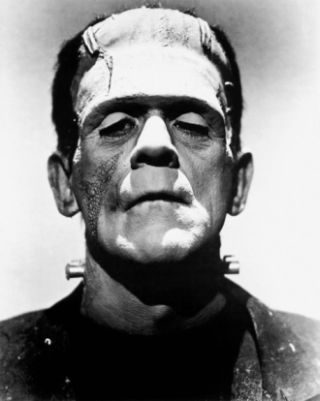
And I think it's great that the actor selected to play Jason, Derek Mears, is apparently a "super nice and dedicated guy" IRL—as has been reiterated by countless sites, thanks—but that's no excuse to fellate a pathetic misstep like this. Set visits to Texas aren't either. Ahem. And you can't justify the movie's shittiness by scoffing that the franchise consists of crumbly, plebeian dung. Crystal Lake Memories wouldn't be absolutely amazing if that were the case. The best Fridays have a hazy charm and creepy atmosphere completely lacking here; the ideal F13th can practically be imagined by anyone. There are countless Frankenstein movies; nobody uses the excuse that most of them suck so the new one should too. Jason has become our modern equivalent. Get it right.
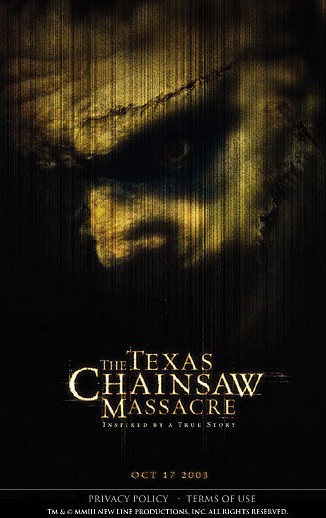
I bring this up now because so many writers went after Rob Zombie's Halloween in 2007 with spittled vehemence that really should have been allotted to Platinum Dunes and Nispel's Texas Chainsaw Massacre remake in 2003. And now they give Nispel another big pass for F13th. Nispel took Tobe Hooper's film—a priceless cornerstone of the horror and thriller genres that should be discussed in film classes, not just in Summer School—and calibrated it for the shallow '00s torture trend, coating it in the shimmery, metallic aesthetic of a Vegas strip club. Platinum Dunes, truth in advertising. Nispel toned down the graphic intensity for F13th, but forgot to explore and nail the sense of fun-by-death, corrupted innocence and modern world-ditching isolation that defines why people dig the franchise. A pair of succulent breasts and an ethnically-diverse cast do not equal pass go.
It's no surprise that PD wants to ditch the pointless brother-sister arc of the first film in the newly announced sequel (or whatever they decide to call it to save money). They have no idea what they're doing with a Horror Giant except guessing what will produce the most milk the fastest. Hopefully Samuel Bayer, whose contributions to the medium of music videos are stellar, breaks PD's corporate mold with A Nightmare on Elm Street, which begins filming in Chicago shortly. "Five, six..."
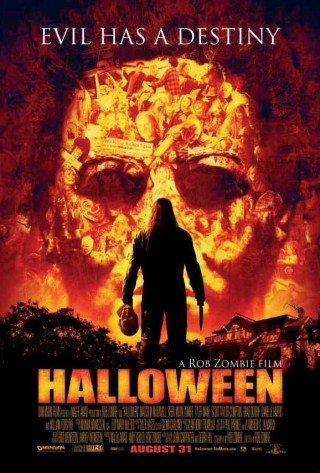
But back to Zombie. I don't know about you, but I'd much rather see Zombie's "reinvention" of Jason Voorhees, Freddy Krueger, or Leatherface than Platinum Dunes'. And the same goes for Michael Myers. No matter how one feels about The Devil's Rejects and House of 1,000 Corpses, Zombie's style and vision for modern horror is his alone, simmering through a thick crust of grindhouse exploitation, twisted serial killer Americana, b&w fuzzy TV horror, and classic rock iconography. Like with Jason, there was no place for Michael Myers to go after so many convoluted, fender-bender sequels but back to ground zero. The difference between Rob Zombie and Platinum Dunes is that Zombie isn't a whore. He actually loves horror and he understands and appreciates why Michael Myers worked originally as Carpenter's The Shape, why the character lives on in pop culture as something far from his origins (like Jason), what a true revamp entails, and why a true revamp was essentially what Myers's warranted and needed to survive.
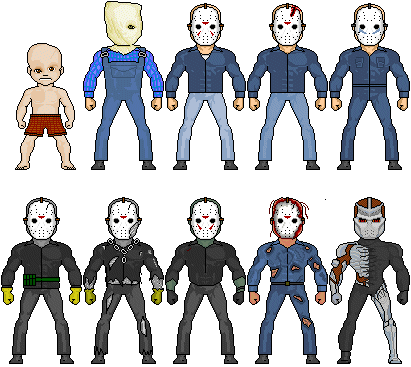
By beginning afresh, Zombie's Halloween and the new F13th faced a similar predicament in confronting Myers's and Voorhees's relationship with mortality and inherent evil. In the new F13th, we never see Jason die or dead as a child. After his nutso mother is beheaded after hunting down a counselor and accusing her of drowing Jason, we see a young (and unzombied) Jason pick up the machete and walk off into the woods. Now, I think if you ask 8-out-of-10 people to recite Jason's back story—a cultural-shaped legacy—you'll find that the majority believe Jason drowned in Crystal Lake and returned much later as a type of unstoppable, undead machete-wielding spectre. The fact that Jason was a mongoloid child and died while negligent counselors were off having sex and smoking dope and normal kids were playing is the primary reason why Jason slays hoards of them again and again for decades; especially considering that his mother was decapitated seeking homicidal revenge. This explains we why we understand and like Jason, but never sympathize with, which makes his appeal cooler and funnier; his allure more tasteless and taboo.
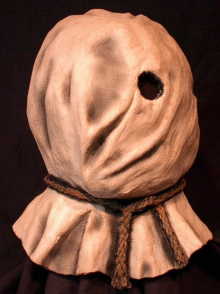
Of course, revisiting the first two F13th sequels, you'll find that it's not 110% crystal whether Jason actually died as a child or somehow survived and thrived in the wilderness—would a zombie wear a burlap sack? who fucking knows?—but Jason's death-by-gargling as noted in the first film makes it much easier to justify his countless resurrections. Moreover, the event of a never discounted drowning lends itself to a timeless ghost story to be recited around camp fires at Camp Crystal Lake, instead of the alternative: ridiculous Sasquatch-like sightings of a fully grown, mentally handicapped Jason who eats wild animals, purportedly enjoys practicing "Dueling Banjos," and is, well, pretty old considering his mental health.
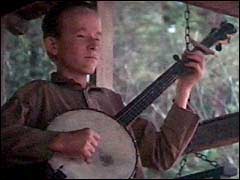
Jason's relationship with the supernatural as well as a genuine undiscerning evil is key and vital to his mystique in 2009, and another big reason why PD's F13th blows it. The possibility of a living Sloth-like Jason who brandishes a bow-and-arrow and lives underground for years just outside of a small town with a police precinct is ruled out—yes, even by F13th and slasher-movie logic—by modernity. A good portion of the film takes place at an upscale cabin/manse located on Crystal Lake. And it's laughable how the "hip" well-to-do kids who party at this residence are equipped with elaborate bongs in briefcases, but are complete tech-luddites (again lazy writing rather than winking cliche, which is nearly as bad). So, the only reason why PD really made the decision to reintroduce Jason as a Deliverance murderer was for the purpose of drawing the series out. Making the new Jason faster and more agile is just another creative short-cut to compliment Nispel's played-out attention span pandering rather than think up real scares and tension. Nothing more.
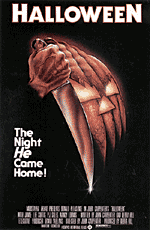
Observation: Unlike with Jason, today's moviegoers arguably did not have an iconic backstory for Michael Myers to justify and solidify his prolonged iconic stature alongside Jason and Freddy Krueger (a child molester and murderer who is burnt to death by townspeople after the justice system lets him loose). From viewing John Carpenter's original 1978 slasher masterpiece, we learn that Myers murdered a member of his family on Halloween night as a small boy and is sent to an asylum, until he escapes years later. (Apparently Myers enrolled in driving school in the years in-between.) As an open-and-shut case presented off-camera, this explanation worked as an ominous gap in the character's timeline to compliment Myers's expressionless, white mask and dialogue-free, silent killing style.
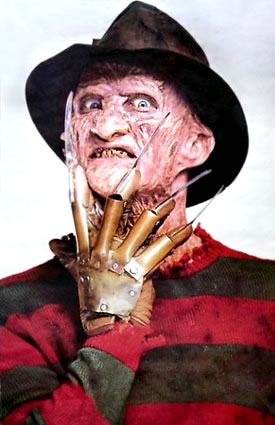
However, unlike Jason Voorhees and Freddy Krueger, Myers's relationship with the supernatural—the ingredient that keeps these characters returning to theaters—always felt iffy. Myers was too much the mortal—betrayed even by his normal physiciality and smaller (or less grotesque) preference of weapon, a kitchen knife—piggybacking on the lucrative slasher genre he pioneered. This set-back is ironic: the fact that Myers does not possess a quasi-sensible reason for revenge (the anniversary of Halloween certainly isn't one) and by brutally killing one of his siblings as a child, Myers is arguably more inherently evil than Jason or Freddy. But ask any horror sicko who would win in a fight during the '80s-'90s-'00s, and Myers was the perennial bronze, leaving Jason and Freddy battling for the crown at the box office six years ago.
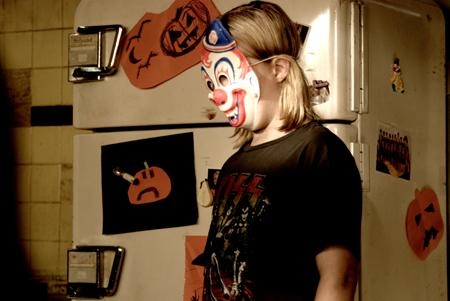
With 2007's Halloween, Zombie finally gave Myers—not Carpenter's vision, but what Myers had come to represent in pop culture over 30 years—the physical upgrade, backstory, and injection of modern cruelty he desperately required. Michael Myers finally started to belong to the triple threat: our new Dracula, Frankenstein and Wolfman. And by having the balls and clout to put his own twist on Myers's mythos, Zombie gave us a welcome modern update—through his signature beer-drenched, KISS-admiring, profane eye—that addressed today's school-aged killers, and the inescapable nature/nurture argument that always proceeds, in relentlessly exploitative fashion. After he's locked up, the otherworldly evil in Myers—as proclaimed by Dr. Loomis—manifests itself in literal, monstrous fashion, until he's a hulking mute with a mask complex.
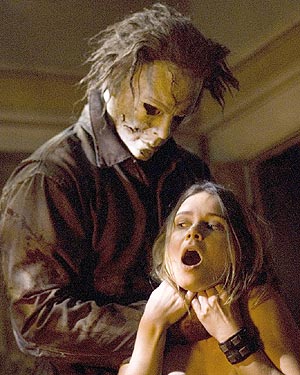
Several critics, like Moriarty at AICN, were and remain mega-incensed with this depiction. Not only do they view John Carpenter's flick as sacred ground, but the argument was made that by explaining and presenting Myers as a kid and later a prisoner—especially in light of the film's long-haired derelict incarnation—Zombie diminished the signature fear resonating from the mystery and unknown that surrounds Myers. It's a valid point, but I believe documenting Myers's life like a yearbook scribbled with rock hooks and nascent kills created a haunting foundation for what will follow (see new pic of Laurie Strode above). Moreover, viewed in the context of the film's later events and its tagline, "Evil has a Destiny," this young Michael Myers is not merely a child serial killer as so many writers and fans decried, but a fully-realized shell for an evil that grows and will not cease.
Zombie was quite vocal about creating a new, seperate vision from all other Halloweens, and he did; but the second half of his revamp mirrored Carpenter's film in homage almost beat-for-beat, and this gave the nostalgic-based arguments of critics like Moriarty more leverage. And yet, two years later, with a sequel on the horizon that will vault Myers into an undoubtedly full-on supernatural slayer rampage, and with Zombie's unique talent once again seeing it through, I don't think anyone would prefer that Platinum Dunes have Myers stuffed in their crowded remake locker. Before I went to see Nispel's F13th, I actually considered Platinum Dunes capable of handling the well-mapped and lubed pleasures of the definitive summer camp slasher. In hindsight, they were too busy pleasuring themselves under Michael Bay's portrait, so forever fuck 'em and cheer for a hurricane. More power to Zombie.

Another image of Laurie Strode from H2: Halloween 2 via Rob Zombie's blog.
Hunter Stephenson can be reached at h.attila[at]gmail or on Twitter.
